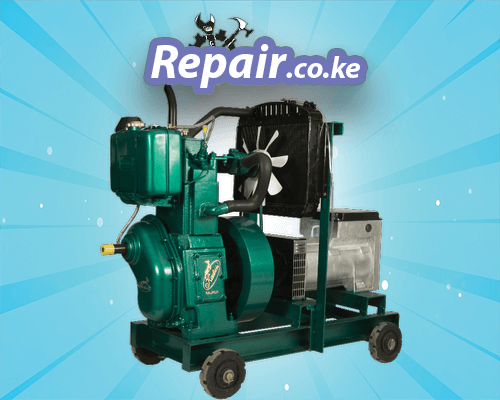Generators play a crucial role in providing backup power during outages, as well as in various applications such as industrial processes, construction sites, and remote areas. Here’s an overview of how generators work and the installation process:
How Generators Work:
- Mechanical Energy Input: Generators are typically driven by various sources of mechanical energy, such as engines (diesel, gasoline, natural gas) or turbines (steam, gas). These sources convert fuel or other forms of energy into rotational motion.
- Rotor and Stator: Inside a generator, there are two main components: the rotor (also known as the armature) and the stator. The rotor is the rotating part, usually attached to the mechanical energy source, while the stator remains stationary.
- Electromagnetic Induction: As the rotor spins, it creates a changing magnetic field. This changing magnetic field induces an electrical current in the windings of the stator through a phenomenon called electromagnetic induction.
- AC or DC Output: The induced current in the stator windings can be in the form of alternating current (AC) or direct current (DC), depending on the generator’s design and application. Most common generators produce AC power.
- Voltage Regulation: Voltage regulation systems ensure that the generated electrical output maintains a stable voltage within an acceptable range. This is essential to prevent damage to connected devices and to ensure consistent power quality.
- Output Terminals: The generated electrical power is then transmitted through output terminals on the generator, which can be connected to power distribution panels, transfer switches, or directly to electrical loads.
Installation Process for Generators:
Installing a generator requires careful planning and adherence to safety guidelines. Here’s a general outline of the installation process:
- Assessment and Sizing:
- Determine the power requirements of your electrical loads to determine the generator’s capacity (rated in kilowatts or megawatts).
- Decide whether you need a portable generator or a permanent standby generator, based on your needs and budget.
- Location:
- Choose an appropriate location for the generator. It should be well-ventilated, easily accessible for maintenance, and compliant with local building codes.
- Fuel Source:
- Ensure a reliable fuel source (diesel, gasoline, natural gas, propane) is available and consider storage requirements.
- Foundation and Mounting:
- Install a suitable foundation or mounting pad to support the generator. Permanent standby generators may require more extensive foundation work.
- Wiring and Connections:
- Install a transfer switch (for standby generators) to automatically switch between utility and generator power during outages.
- Connect the generator to your electrical system through appropriate wiring, ensuring proper grounding and safety measures.
- Exhaust and Ventilation:
- Install an exhaust system to safely channel exhaust gases away from the generator and any occupied spaces.
- Ensure proper ventilation to prevent heat buildup and ensure efficient operation.
- Start-Up and Testing:
- Test the generator’s start-up procedure and verify that it functions correctly.
- Perform load testing to ensure the generator can handle the expected electrical load without issues.
- Maintenance and Compliance:
- Establish a regular maintenance schedule to keep the generator in optimal condition.
- Ensure that the installation complies with local electrical and building codes.
- Safety Precautions:
- Clearly label and document generator controls and procedures.
- Install appropriate safety devices, such as circuit breakers and grounding systems.
It’s important to note that the installation process may vary based on the type and size of the generator, local regulations, and specific requirements. If you’re not experienced with electrical work, it’s recommended to hire a licensed electrician or generator installation professional to ensure a safe and reliable installation.

